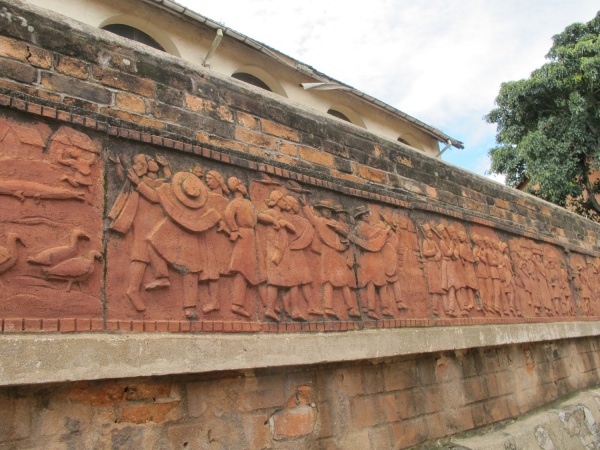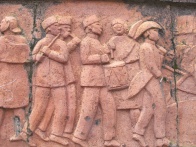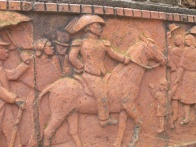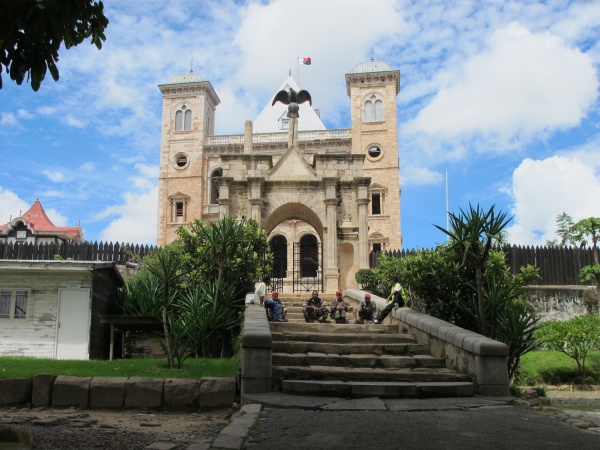Difference between revisions of "Manjakamiadana Rova"
| Line 4: | Line 4: | ||
The original structure of the palace was made of wood, which was changed to stone on order of Queen Ranavalona II in 1869. In 1995 a fire almost completely destroyed the palace, sparing only the stone walls. Since 2005 the palace undergoes restoration, which depending on the political situation in the country stops now and then. | The original structure of the palace was made of wood, which was changed to stone on order of Queen Ranavalona II in 1869. In 1995 a fire almost completely destroyed the palace, sparing only the stone walls. Since 2005 the palace undergoes restoration, which depending on the political situation in the country stops now and then. | ||
| + | |||
| + | {| class="imageTable" | ||
| + | |- | ||
| + | |colspan="3" | [[File:Rova_002.jpg|600px]] | ||
| + | |- | ||
| + | |[[File:Rova_003.jpg|196px]] | ||
| + | |align="center"|[[File:Rova_004.jpg|196px]] | ||
| + | |align="right"|[[File:Rova_005.jpg|196px]] | ||
| + | |} | ||
Although the palace is still closed, the location is worth a visit. Against a small fee, guides will take visitors along a trail encircling the premises whilst explaining the palace's history and adjoining buildings. Due to its location, the palace offers great panoramic views onto the city and the twelve sacred hills. | Although the palace is still closed, the location is worth a visit. Against a small fee, guides will take visitors along a trail encircling the premises whilst explaining the palace's history and adjoining buildings. Due to its location, the palace offers great panoramic views onto the city and the twelve sacred hills. | ||
''Note:'' Visitors are advised to keep an eye on their belongings as pickpocketing is commonplace in this area. | ''Note:'' Visitors are advised to keep an eye on their belongings as pickpocketing is commonplace in this area. | ||
Revision as of 16:48, 12 November 2012
The Rova (also named Queen's Palace or Manjakamiadana) is the landmark of Antananarivo. Situated at the top of Analamanga hill, the rova clearly stands out of the skyline of Tana and can be seen already from a far distance. From the 17th to the 19th century the palace served as residence for kings and queens of the Merina kingdom.
The original structure of the palace was made of wood, which was changed to stone on order of Queen Ranavalona II in 1869. In 1995 a fire almost completely destroyed the palace, sparing only the stone walls. Since 2005 the palace undergoes restoration, which depending on the political situation in the country stops now and then.

| ||

|

|

|
Although the palace is still closed, the location is worth a visit. Against a small fee, guides will take visitors along a trail encircling the premises whilst explaining the palace's history and adjoining buildings. Due to its location, the palace offers great panoramic views onto the city and the twelve sacred hills.
Note: Visitors are advised to keep an eye on their belongings as pickpocketing is commonplace in this area.
